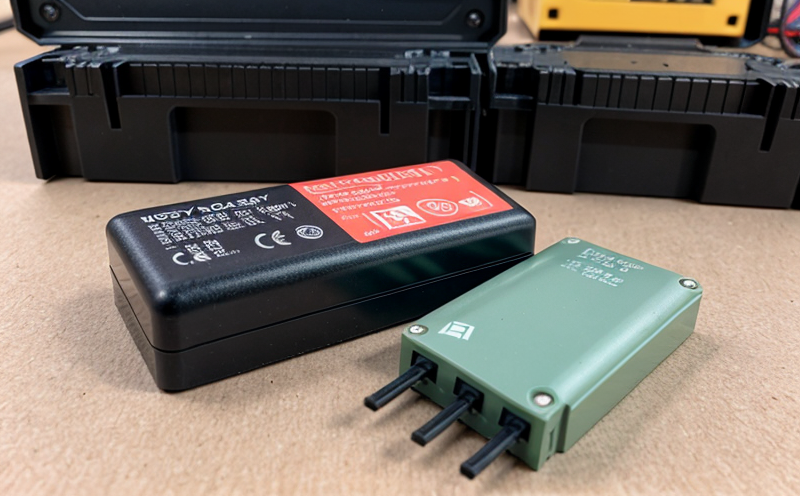GB/T 31484 Performance Testing of EV Battery Packs
The GB/T 31484 standard is a pivotal regulation in China that governs the performance testing of electric vehicle (EV) battery packs. This standard ensures that all EV batteries meet stringent safety, reliability, and efficiency benchmarks. Compliance with this standard is essential for manufacturers to ensure their products are safe, reliable, and perform optimally under various conditions.
The testing procedures outlined in GB/T 31484 cover a wide array of performance metrics including charging, discharging, internal resistance, capacity retention, and temperature cycling. These tests are designed to evaluate the battery’s ability to maintain its performance over time and across different environmental conditions. The standard also emphasizes the importance of durability and safety features such as thermal management systems, voltage balancing mechanisms, and protection circuits.
The testing process begins with a thorough inspection of the battery pack, followed by detailed documentation of any pre-existing issues or potential risks. Specimen preparation involves connecting the battery to the appropriate test equipment, ensuring all connections are secure and correct. Once prepared, the battery is subjected to a series of tests designed to simulate real-world usage conditions.
One of the key aspects of GB/T 31484 is its emphasis on the use of advanced instrumentation for accurate measurement. This includes high-precision meters for voltage, current, and temperature readings during charging and discharging cycles. Additionally, sophisticated thermal imaging cameras are used to monitor heat distribution within the battery pack throughout testing.
Another critical component of GB/T 31484 is the evaluation of capacity retention over time. This involves monitoring how much charge remains in the battery after repeated full charge-discharge cycles under specified conditions. The results provide valuable insights into the longevity and efficiency of the battery, which are crucial for EV manufacturers aiming to meet regulatory requirements.
The standard also mandates testing for temperature cycling, a process that simulates extreme environmental conditions experienced by EVs during operation. By subjecting batteries to wide swings in temperature, manufacturers can identify any weaknesses or vulnerabilities that could compromise safety or performance. This helps ensure that the battery maintains its integrity and functionality across all expected operating environments.
Through rigorous adherence to GB/T 31484, manufacturers not only enhance the reliability of their EV products but also contribute positively to sustainability efforts by promoting longer-lasting batteries with reduced environmental impact. Compliance ensures that consumers can trust these vehicles for safe, efficient travel while minimizing resource consumption and waste generation.
Understanding the nuances of this standard is vital for quality managers, compliance officers, R&D engineers, and procurement teams involved in EV development projects. By familiarizing themselves with the specific requirements outlined in GB/T 31484, these professionals can better manage their operations to ensure full compliance and successful product launches.
Quality and Reliability Assurance
The implementation of quality control measures during battery manufacturing is crucial for ensuring consistent performance across all units produced. Quality assurance processes typically involve multiple stages including initial component inspection, assembly line checks, final system testing, and post-production audits.
- Initial Component Inspection: Ensures that each part meets the necessary specifications before being incorporated into the battery pack.
- Assembly Line Checks: Regularly monitors the production process to catch any deviations from standard procedures early on.
- Final System Testing: Validates that every completed battery pack functions correctly according to design specifications.
- Post-Production Audits: Conducts comprehensive reviews of finished products to identify areas for improvement and maintain high standards throughout operations.
These steps help establish robust quality assurance practices within the organization, fostering a culture of excellence where every aspect of battery manufacturing is closely monitored. This approach not only enhances product reliability but also builds customer confidence in the brand's commitment to delivering superior performance.
Environmental and Sustainability Contributions
The emphasis on sustainability through GB/T 31484 extends beyond just ensuring safe and reliable EV batteries; it plays a significant role in reducing overall environmental impact. By promoting longer-lasting batteries with enhanced efficiency, manufacturers contribute to lower greenhouse gas emissions from transportation sectors.
- Reduced Resource Consumption: Longer-lived batteries mean fewer replacements, thus conserving raw materials used in production.
- Lower Waste Generation: Fewer discarded batteries translate into less electronic waste requiring disposal or recycling.
- Energy Efficiency Improvement: Higher-efficiency batteries lead to better fuel economy for electric vehicles, reducing energy consumption per mile traveled.
Incorporating sustainable practices early in the design and manufacturing stages allows companies to align their business goals with global environmental initiatives. This not only enhances brand reputation but also supports broader societal efforts towards greener transportation solutions.
Competitive Advantage and Market Impact
Achieving compliance with GB/T 31484 offers several competitive advantages for manufacturers operating within the Chinese market. Notably, it opens doors to lucrative government incentives aimed at fostering innovation in clean energy technologies.
- Leverage Government Incentives: Compliance can qualify businesses for tax breaks and subsidies offered by local governments encouraging sustainable practices.
- Bolster Brand Reputation: Demonstrating adherence to rigorous international standards boosts consumer trust, leading to increased market share.
- Promote Innovation: The stringent requirements push engineers to develop cutting-edge solutions that optimize performance while minimizing environmental footprint.
In addition to these immediate benefits, there’s an ongoing trend towards global harmonization of technical standards. As more countries adopt similar regulations, early adoption of GB/T 31484 could provide a strategic advantage by positioning companies as leaders in this evolving space.





